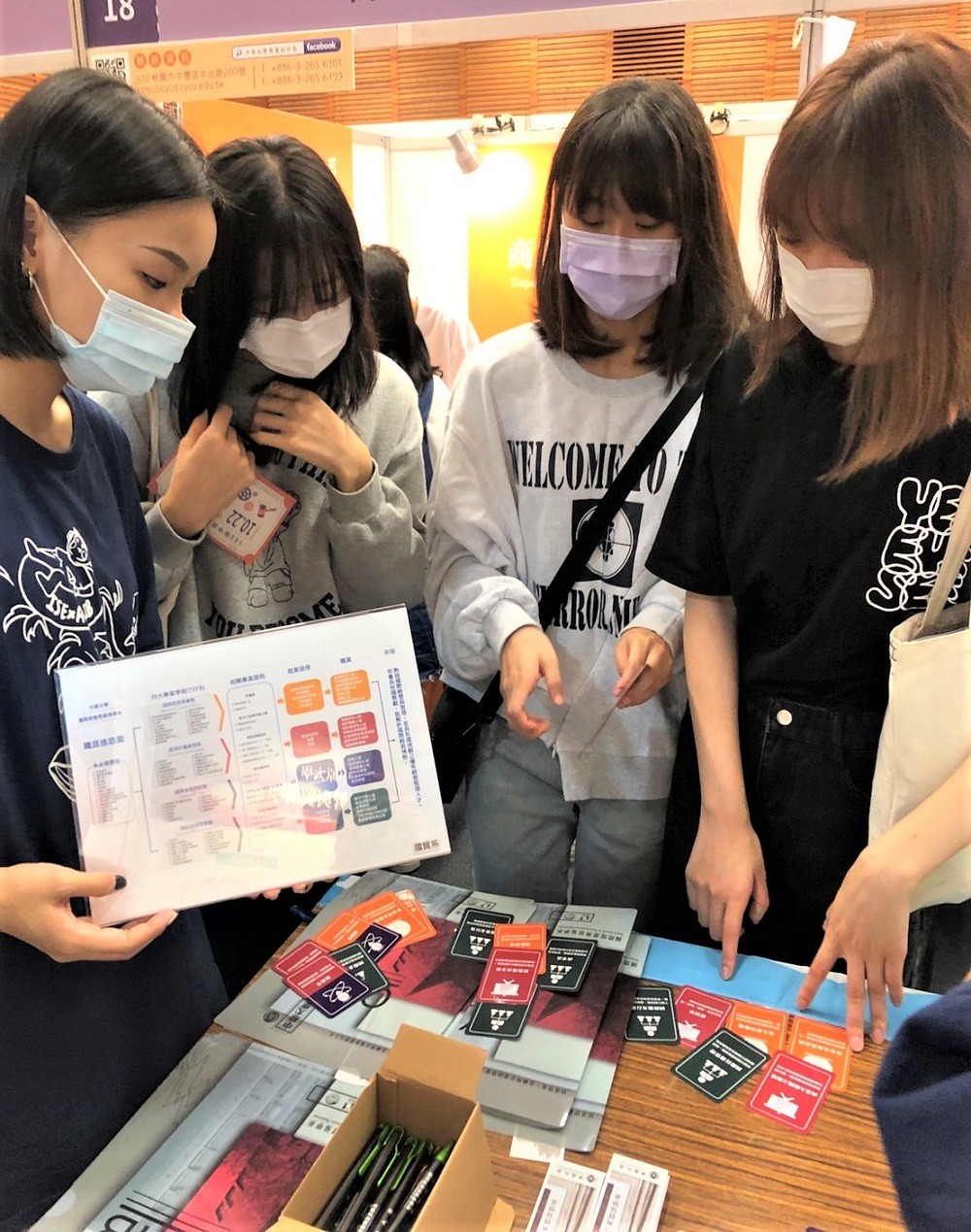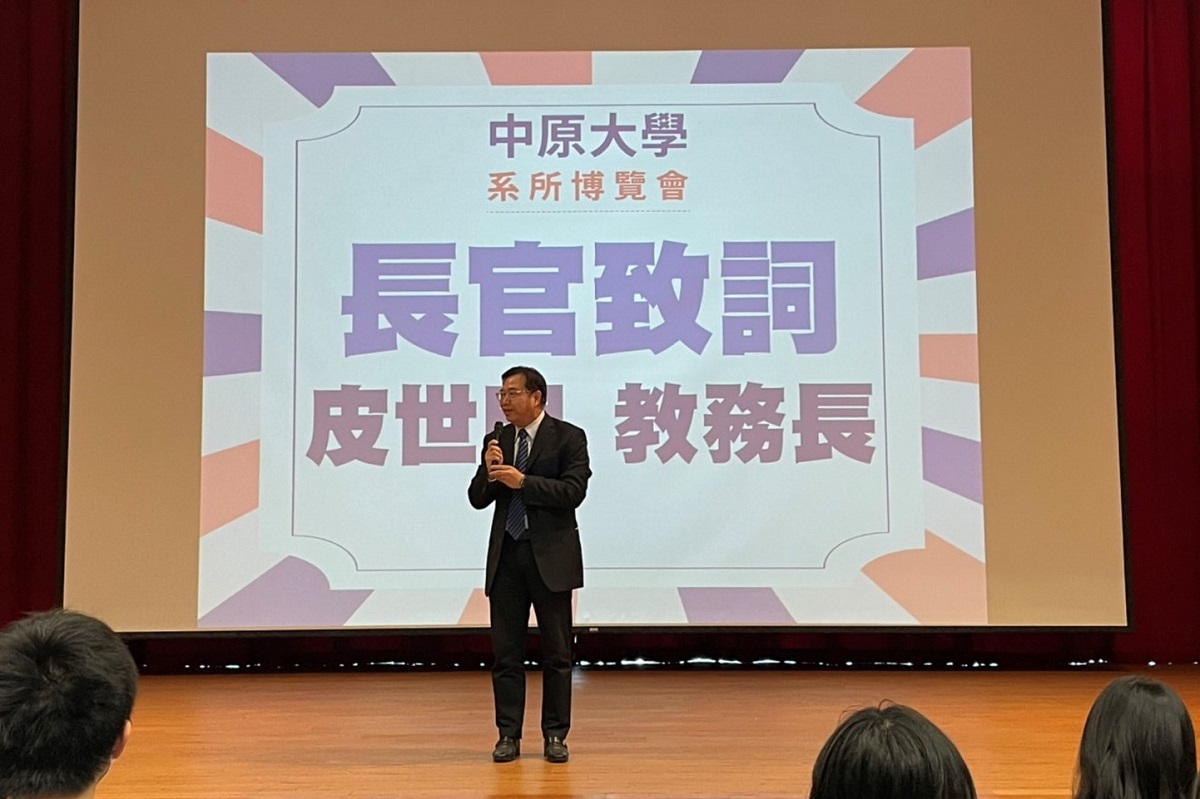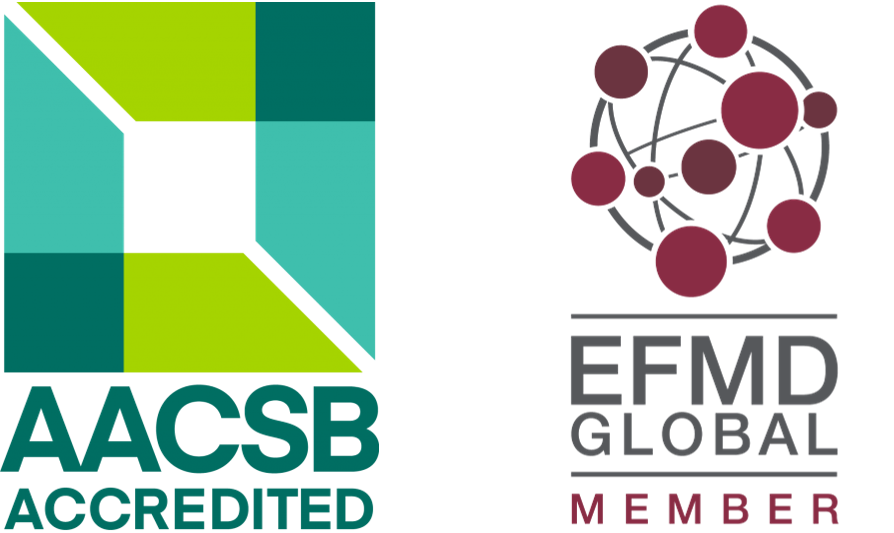
Chung Yuan Christian University held its Department Exposition on October 22, inviting high school students from across the country to explore the university’s various departments and their highlights. The event also included informative sessions on university admissions and various academic lectures, allowing students and parents to gain a better understanding of university programs and future career development. Among the activities, the International Business department’s “Course Wars – TEFB Four Professional Programs” micro-board game combined courses with career development, attracting many high school students to experience it. This also allowed high school students to gain more goals and expectations regarding their higher education.
Unlike previous years, when university programs were introduced through brochures and posters, the International Business department collaborated with alumni from the Information Management department to develop the “Course Wars – TEFB Four Professional Programs” micro-board game. This innovative approach allowed students to learn about the department’s courses in a more engaging way, helping high school students focus their attention when choosing their future program. International Business department chair, Yi-Fen Chen, stated, “The ‘Course Wars’ micro-board game condenses the university’s four years of curriculum into a 10-minute experience. High school students can actively think and quickly understand the program’s content, while also using a career pathway map to identify areas of interest that align with their goals.” Yi-Fen Chen added, “Chung Yuan International Business aims to embody the spirit of the 108 Curriculum Guidelines – ‘personalized talent development and lifelong learning’ – to inspire students’ desire to learn and the courage to innovate.”
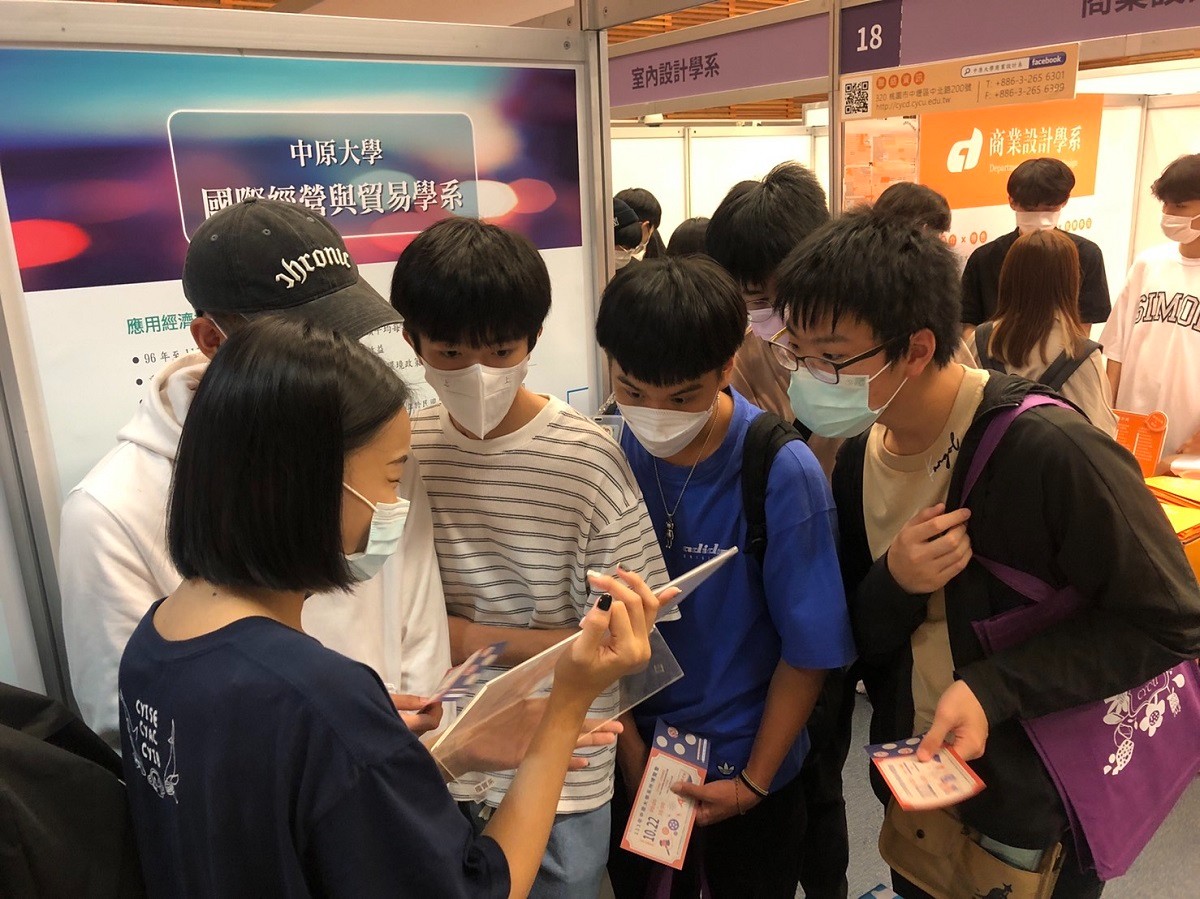
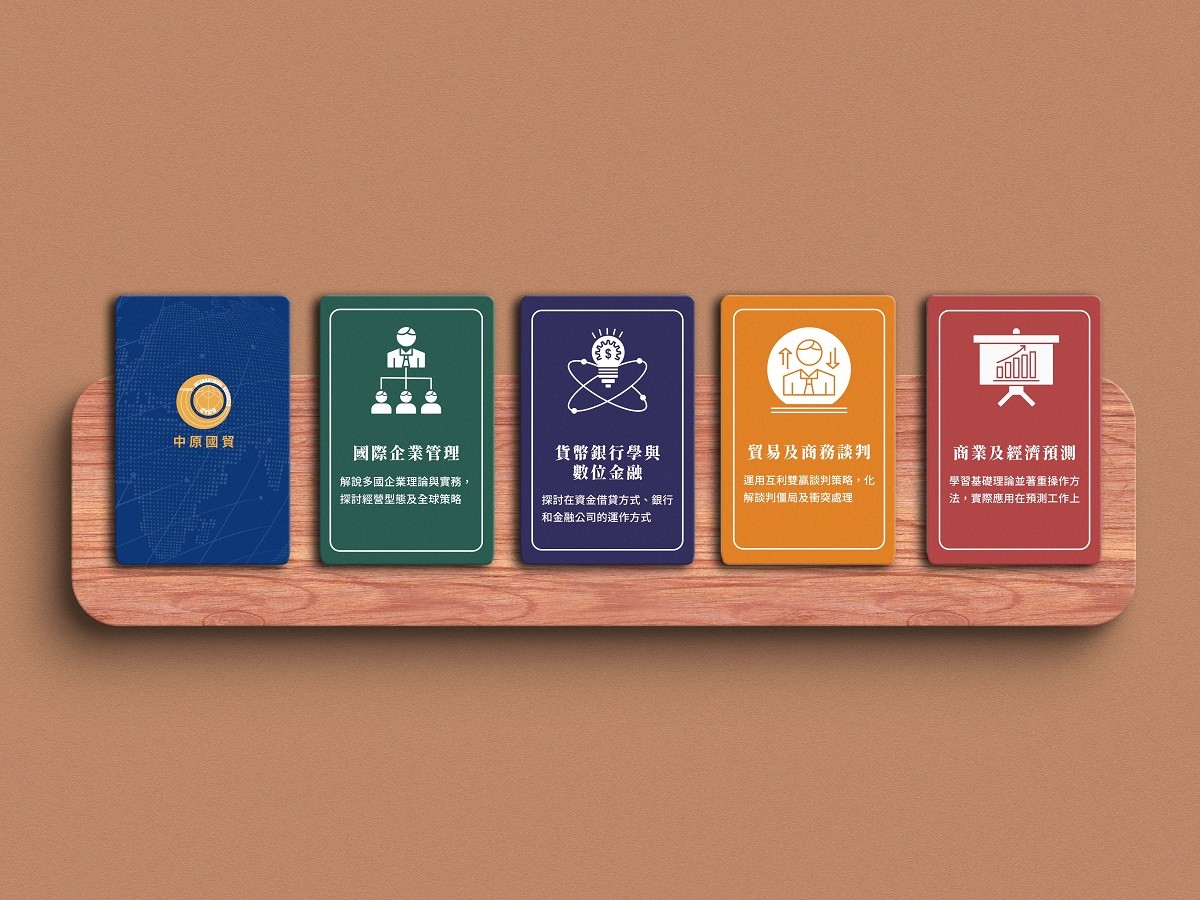
The micro-board game experience was developed by Carode Studio, founded by Wei-Hong Yang, an alumni of the Information Management department. Wei-Hong Yang expressed his excitement at the opportunity to collaborate with his alma mater, using the board game experience to quickly introduce high school students to course features and career development. This approach makes learning a two-way, interactive process rather than a one-way lecture. A second-year student from Taoyuan Municipal Longtan Senior High School, Li, mentioned that although he had previously attended a department introduction at Chung Yuan Christian University, the game-based explanation was a unique and valuable experience. By first learning about the program content and then selecting a field through the board game, he was able to delve deeper into the four major programs and better understand his interests, which would significantly help with future program selection.
In addition to compulsory courses, the International Business department offers four major professional programs: International Trade and Practice, Econometrics and Forecasting, International Finance, and International Business Management. Students have the flexibility to take courses from these four programs, or they can systematically pursue a course sequence within one of the professional programs. After completing the program requirements, students can receive a program certificate upon graduation, enhancing their future employment prospects.

Chung Yuan Christian University’s Vice President for Academic Affairs, Shih-Ming Pi, stated that the university has received recognition for its commitment to Holistic Education. Not only has the university achieved a 100% freshman registration rate for three consecutive years, but it also ranks first among private universities in Taiwan for student retention. The Department Fair organized by the university every year attracts high school students nationwide. The Center for Educational Development for Science and Humanities also promotes diverse science education activities for high school students, such as science exhibitions, science camps, and scientific reading programs. These initiatives share the university’s academic resources with regional high schools, fulfilling the university’s social responsibility for education in a spirit of mutual progress and prosperity.
